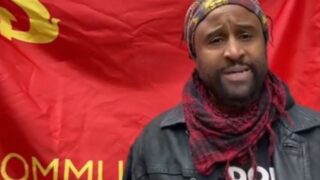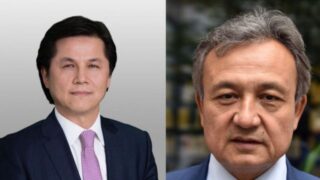A plan for church activities hardly includes anything Christian, and calls for studying and teaching the works of Marx and Xi Jinping, and the CCP official documents.
by Qi Junzao


The local activities of the Three-Self Church, the united Protestant organization controlled by the CCP, are often of interest to understand how the Party tries to work through the Christian churches. What transpires in the instructions received by pastors in one city or province is likely to happen nationwide, as the activities of the Three-Self Church are coordinated and hierarchical.
On April 26, 2023, the Two National Christian Councils of Taiyuan city, Shanxi province gathered the local Three-Self pastors for a symposium on the theme “Study the Twentieth National Congress.” The meeting was presided by Pastor Zhang Enlai, director and president of the Municipal Two Christian Councils of Taiyuan. Representatives of the United Front also attended the symposium.
The pastors were equipped with a document issued by the Municipal Ethnic and Religious Affairs Bureau, called a “Work Plan on Carrying out the ‘Party, Country, Rule of Law’ Study and Education Activities in the City’s Ethnic and Religious Circles.” This in itself made clear that what “religious circles” should do and teach is decided by authorities who operate outside (and above) the religious organizations.
Obeying the Bureau’s indication, the Three-Self leaders in turn gave the pastors a list of the “work priorities for the second quarter of 2023.” Examining this priorities is of great interest, because they barely mention Christian evangelization. Instead, in addition to the ubiquitous and never sufficient “Sinicization of Christianity,” what pastors are expected to do in the second quarter of 2023 is “conscientiously study and implement the spirit of the 20th National Congress of the Communist Party of China,” teach parishioners to “always follow the Party,” “implement the spirit of the 20th National Congress of the CCP,’’ ‘study Xi Jinping Thought on Socialism with Chinese Characteristics for the New Era.”


The most “religious” topic they are expected to present in their sermons are Xi Jinping’s speeches to the 2021 National Conference on Work Related to Religious Affairs. But in what the Taiyuan document calls “Xi Jinping’s important exposition on religious work,” China’s President in fact called religionists to become “firm in ideology and politics, adhere to Marxist religious views, … and strengthen the construction of the discipline of Marxist religious studies”—hardly a Christian plan, considering Marx’s less than sympathetic attitude to Christianity.
What happened in Taiyuan was a local event—attended by all the powers that be, the United Front, the Municipal CCP authorities, the Three-Self bureaucrats—but it should be understood as part of a puzzle, whose pieces are similar meetings happening everywhere in China. When the puzzle is completed, we see a plan to take Christianity out of the Christian churches in Cina, replacing it with the thought of Marx and Xi Jinping.









